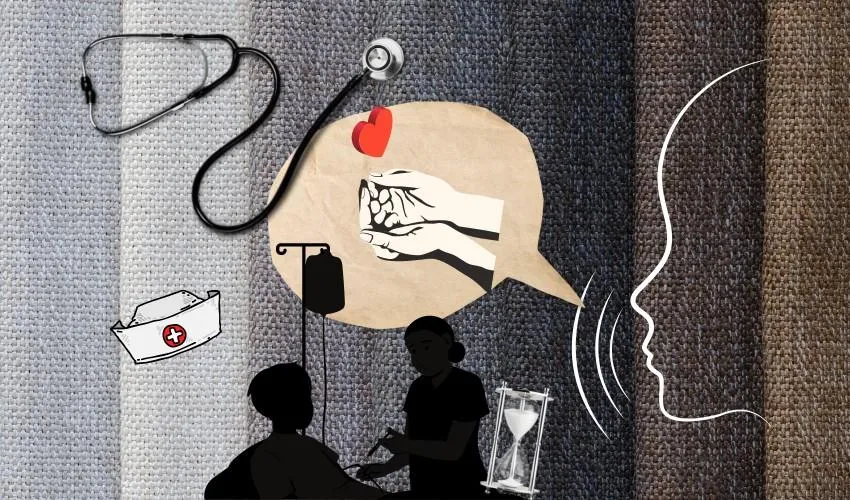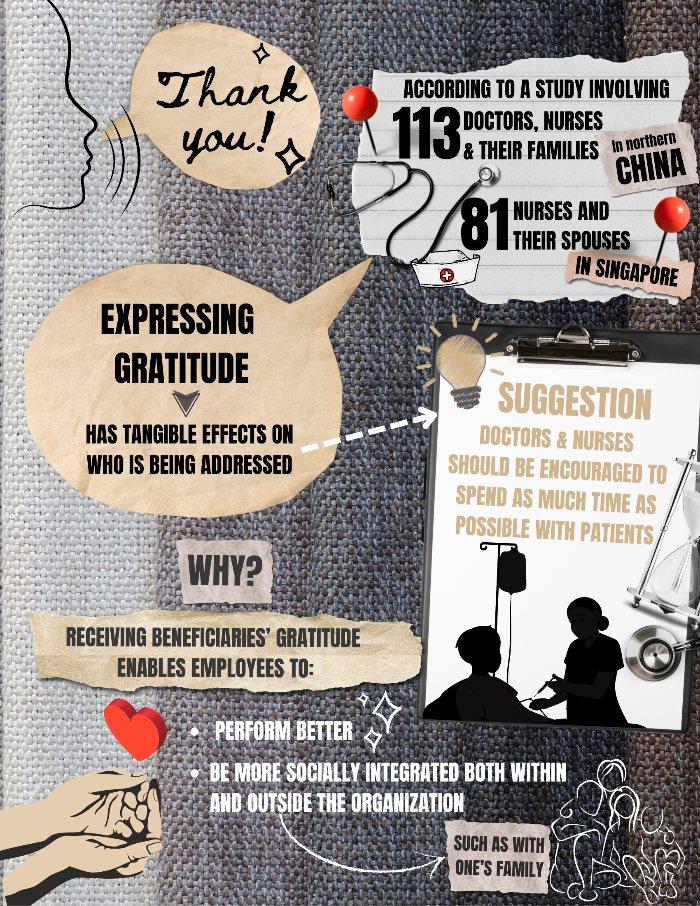
The Power of Gratitude
If you believe that saying "thank you" is just a way of being polite towards someone who has done something nice for you, think again. Expressing gratitude, in fact, is not just a way of complying with social standards. It also has tangible effects on who is being addressed. New research by Bocconi's Remus Ilies and others shows that receiving thanks on the job can demonstrably boost people's well-being even beyond their workplace.
Infographics by Weiwei Chen
This finding, far from being just a confirmation of what we might have always suspected, has important implications on organizational design, by stressing the importance of providing channels by which tokens of appreciation can easily and reliably reach their intended recipients.
Previous research on the effects of gratitude had a focus on studying its effects on those who are expressing it, leaving the consequences of being at the receiving end of thanks largely unexplored. This opens a very promising area for future study which Professor Ilies and his colleagues have begun to probe.
The fieldwork for the research was conducted in two separate studies, one involving 113 doctors and nurses of a hospital in Northern China and their families, the other 81 nurses and their spouses in Singapore. After two years of COVID-19 pandemic, it is quite fitting that this paper has been looking at healthcare professionals: as a category which has been so constantly and heavily exposed to stressful conditions for a long period, they are at a significant risk of burnout and anything liable to improve their work environment is worth looking into.
Drawing on the concept of "relational energy", which is defined as a motivational psychological state that can be increased or depleted by interpersonal interactions, the paper argues that this kind of energy is a key personal resource that may be generated from receiving beneficiaries' gratitude and that, therefore, enables employees to perform better. As the authors point out, "gratitude is a social emotion that signals positive interactions with patients or service beneficiaries", and "receiving gratitude from beneficiaries at work can encourage service employees to be more socially integrated both within and outside the organization, such as with one's family".
What is more, the positive effects of receiving expressions of gratitude are greater if a professional is strongly identified with their job. Doctors and nurses participating in this study benefited from patients' gratitude in terms of experiencing increased relational energy, and those with higher occupational identity benefited more (in the Chinese sample, a 1-point increase in gratitude was associated with a 0.2-point increase in relational energy) compared to those with lower occupational identity (the comparable increase was just 0.04 points).
Similarly, with respect to spousal family satisfaction, doctors and nurses with higher occupational identity benefited more from patients' gratitude (through increased relational energy) compared to those with lower occupational identity.
This is understandable, as being thanked for a job well done means getting a demonstration that something valuable has been carried out, and a strong identification implies that its perceived value is higher. Less predictable is the effect on the home environment for those who have a stronger occupational identity, as conventional wisdom considers these people as too absorbed by their jobs to invest in their families.
"This study suggests that doctors and nurses should be encouraged to spend as much time as possible with patients, as this would benefit both professionals and patients. In other words, patients should be given as many opportunities as possible to express their gratitude to hospital staff, and this should become a priority in designing positions within healthcare units," Prof. Ilies concludes.
Pok Man Tang, Remus Ilies, Sherry S. Y. Aw, Katrina Jia Lin, Randy Lee, and Chiara Trombini, "How and When Service Beneficiaries' Gratitude Enriches Employees' Daily Lives", Journal of Applied Psychology, Advance online publication. https://doi.apa.org/doi/10.1037/apl0000975